 A few weeks ago I submitted my story ‘For a Few Dollars More’ to Ether Books. The story tells of a young prostitute’s interactions with two very different customers, and deals with a very intense non-consensual scenario. Filling out my submissions form I automatically ticked the ‘Erotica’ box. Due to the fact that my story depicts graphic, explicit sexual interaction, this decision was made by default: I assumed that because of the content the ‘Erotica’ genre would not only represent the sex in the story, but also stand as something of a warning for those who did not want to stumble across explicit passages by mistake. However, later that day I received an email from Helen Fleming at Ether Books asking if they could instead publish it under ‘Contemporary’. She said:
A few weeks ago I submitted my story ‘For a Few Dollars More’ to Ether Books. The story tells of a young prostitute’s interactions with two very different customers, and deals with a very intense non-consensual scenario. Filling out my submissions form I automatically ticked the ‘Erotica’ box. Due to the fact that my story depicts graphic, explicit sexual interaction, this decision was made by default: I assumed that because of the content the ‘Erotica’ genre would not only represent the sex in the story, but also stand as something of a warning for those who did not want to stumble across explicit passages by mistake. However, later that day I received an email from Helen Fleming at Ether Books asking if they could instead publish it under ‘Contemporary’. She said:
“[We're] not sure if Erotica is the right genre. Erotica, from our point of view, is to titillate so we are uncomfortable with publishing this particular piece in that category. Would you be happy for me to change the genre to Contemporary rather than Erotica […]? Contemporary is for modern-day, generally realistic life stories, which can venture into bleak territory and confront controversial issues.”
This message could be taken in a variety of different ways, some of which I have since pondered. On the one hand, it seems to suggest that ‘controversial issues’ don’t belong in Erotica; that Erotica is closer to Romance in that it should deal with largely happy situations and sensual sexuality, and therefore my story of prostitution and rape does not conform to that framework. This view could be based upon the idea that people read Erotica in order to be aroused, and that ‘controversial issues’ are not generally considered to be arousing. This, then, makes assumptions about what people find arousing, and for me that poses two problems. First of all, it is difficult because everyone has different arousal triggers. For some that socially acceptable sensuality may genuinely be the gateway to their sexuality; but for others – myself included – the transgression and difficulty of those ‘controversial issues’ may be far more intriguing. Secondly, if Erotica is there to cause arousal and has no place confronting its readers with conflict, then I would argue that the term ‘Erotica’ has become almost synonymous with ‘pornography’.
But I want to step back from Ether Books, because I believe this question is much larger than one company making a decision about genre, and, in fact, it may be that they consider stories on a piece-by-piece basis, and that ‘For a Few Dollars More’, which is a particularly gritty story, is simply a step too transgressive for their idea of Erotica – which may still contain some conflict and/or difficulty. To know where they really stand on that issue I – or you – would have to read a lot of what they publish as Erotica.
I also want to point out (once again) that I do not believe that literary, or contemporary, or conflict-ridden (whatever term you wish to use) Erotica is any better or worse than pornography. Pornography is a damn fine tradition, and takes very particular skills to create. This is not a matter of quality, but a matter of definition.
When I replied to Helen I wrote:
“That’s absolutely fine. I actually agree – as the genre stands, very little of my work fits under ‘Erotica’. […] I would be delighted to be placed elsewhere as, I agree, my writing doesn’t really belong there.”
And I stand by that. I think, in this case, Helen is completely right. And the problems with the Erotica genre are not about any one publisher or writer, they are deeply ingrained in the genre, and as it stands, Erotica unequivocally misrepresents my writing – and the writing of many brilliant authors.
With Erotica now very much in the public eye – spearheaded by that trilogy we will not name – it has also become synonymous with terms such as “Mummy Porn”, seeming to highlight the kind of literature published by Mills & Boon, and other similar companies. Generally speaking, these publishers are not dealing with conflict; drama and obstacles, yes, but not conflict. And my writing sure as hell does not fit in with this kind of literature. In fact, I would argue that, in terms of content – I am not making qualitative comparisons – ‘For a Few Dollars More’ is much closer to Vladimir Nabokov and Angela Carter than it is to Maya Banks and Michelle Reid.
There was a discussion on twitter a couple of weeks ago about creating a new genre, but this is so rife with problems, and just seems to open yet another erotic genre to exploitation. So, for myself, I am more than happy to be put into a genre titled Contemporary, because it does not set up as many assumptions about content, or emotional or sexual response. It simply puts my work in with other pieces that are difficult to define. And that suits me down to the ground, because as it stands, I don’t think Erotica has space for conflict, and I have no interest in writing without that kind of difficulty.
Genres may just be another form of labels, but they certainly bear thinking about, particularly when eroticism and (perhaps) arousal – two very intangible subjects – are involved. Because we cannot know what our readers consider erotic, but it is the job of publishers to label your work; after all, that’s how you sell it.
• • • • •
Despite the initial uncertainty about Ether Books displayed in this piece I actually recommend them quite highly. They are friendly, professional, and (most importantly, to me) unlikely to censor you for dealing with difficult subjects. That alone is pretty rare, and therefore precious, in the publishing world.
In order to purchase ‘For a Few Dollars More’, download the Ether Books app, and find Harper Eliot under Authors.

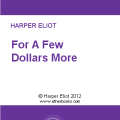










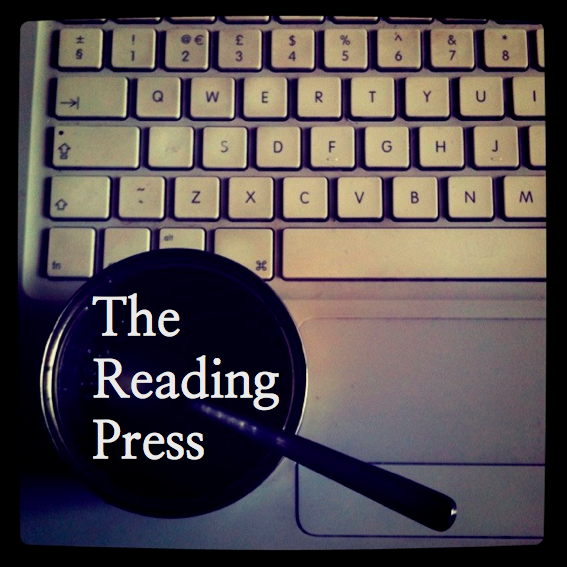

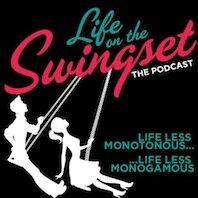
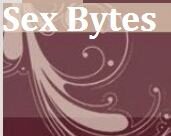
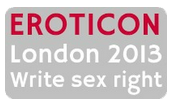
This is what a lot of writers think, put succinctly. Thank you.
That is very good to hear.